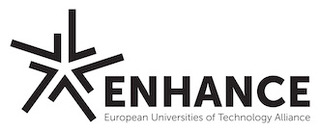Summer School 2025
Inter- and Transdisciplinary Integration in Science, Policy and Practice
Course Catalogue
Course description

Integration is an integral part of inter- and transdisciplinary research. It implies the co-production and synthesis towards a problem and its potential solutions. It is a fundamental process when collaborating across disciplines and thematic fields and working at the interface between science, policy and practice. Drawing on empirical cases students work in a hands-on experiential setting.
Expected learning outcomes
Meeting environmental and societal challenges requires responses that integrate a wide range of perspectives from different disciplines (i.e. interdisciplinary integration), as well as from science, policy and practice (i.e. transdisciplinary integration).
Integration, in this context, is an integral part of inter- and transdisciplinary research. It implies the co-production and synthesis of different knowledges, perspectives, insights, interests, expectations and collaborative approaches towards a problem and its potential solutions. It is a fundamental process in research when collaborating across scientific disciplines (e.g., natural and social sciences) and thematic fields (e.g., policy analysis) and working at the interface between science, policy and practice. The summer school offers a hands-on experiental setting together with empirical cases situated at that interface.
At the end of the summer school students are able to:
- Understand and analyse different theories, concepts, methods and tools of integration and assess their strenghts and weaknesses.
- Apply methods and tools of integration to selected case studies and critically reflect on their potentials and limitations.
- Communicate and collaborate with others in different contexts and forms, bringing in own viewpoints, recognising others, and synthesising ideas.
Learning Opportunity Structure
The summer school focuses on:
- Theories and concepts of interdisciplinary and transdisciplinary integration (i.e. process, output, one-sided, mutual) across different scientific communities (science of team science, integration and implementation science, science and technology studies, transformative research).
- Dimensions (i.e. strategic, cognitive, social, emotional, spatial, temporal) and principles of integration (i.e. design integrative process, form diverse group, forge robust social bonds, create boundary objects, etc.).
- Methods and tools of integration (e.g. Theory of Change; nomadic concepts, common conceptual framework, joint research questions, boundary objects, etc.) and researchers' diverse roles at the interface between science, policy and practice.
To approach these topics students will work on two case studies to gain hands-on experience on inter- and transdisciplinary integration. Cases lie at the interface between science, policy and practice targeting interdisciplinary and transdisciplinary integration, for example: innovative resource-oriented water and sanitation systems (WINGS), sustainable water management (NRP61), transformation of pesticide governance (TRAPEGO), integrated assessment models for sustainable development (DIAMOND), coordinated interactions among partners in the energy system (CoSi). Lecturers include our CSTS Group members, PD Dr Bianca Vienni-Baptista, Dr Stephanie Briers, and PhD candidate Konstandy Ramowtowski-Kula.
Further information
LANGUAGE: English
PLACES AVAILABLE: limited to 25
TEACHING PERIOD: Monday 18 August, 2025 - Friday 22 August, 2025
APPLICATION PERIOD: 1 March 2025 - 1 May 2025
FORM OF PARTICIPATION: Onsite
DURATION: 5 days
ESTIMATED EFFORT: 30 hours
ECTS Credits: 2
Students will have the opportunity to present their current research interests/work in an interactive activity. Details will be shared upon confirmation of participation.
Lecturers:
PD Dr Bianca Vienni-Baptista (CSTS Group Lead, ETH Zurich, link to profile)
Dr Sabine Hoffmann (ITD Group Lead, Eawag – external page link to profile)
Contributors:
Dr Stephanie Briers (CSTS, TdLab, ETH Zurich – link to profile)
MSc. Konstanty Ramotowski (CSTS, TdLab, ETH Zurich - link to profile)
MSc. Hanna Salomon (ITD Group, Eawag)
Teaching Assistant:
Paula Winkler (CSTS, TdLab, ETH Zurich)
How to enroll
Registration until 1 May 2025 with a short CV (max. 2 pages) and a motivation letter (1 page). The selection will take place shortly afterward. Applicants will be informed by 31 May 2025 about the outcome.
For ENHANCE Alliance students:
Please register external page here
For ETH and students from other universities (not ENHANCE members)
Please register here
Please contact PD Dr Bianca Vienni-Baptista in case of any questions: bianca.vienni@usys.ethz.ch